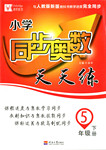题目内容
When Mr. David retired(退休),he bought a small house in a village near the sea. He liked it and hoped to live a quiet life in it.
But to his great surprise, many tourists came to see his house in summer holidays, for it was the most interesting building in the village. From morning to night there were tourists outside the house. They kept looking into the rooms through the windows and many of them even went into Mr. David’s garden. This was too much for Mr. David. He decided to drive the visitors away. So he put a notice on the window. The notice said: “If you want to satisfy your curiosity(好奇心), came in and look round. Price: twenty dollars.” Mr. David was sure that the visitors would stop coming, but he was wrong. More and more visitors came and Mr. David had to spend every day showing them around his house. “I came here to retire, not to work as a guide(导游).” he said angrily. In the end, he sold the house and moved away.
1.Mr. David’s house was that many tourists came to see it.
A.so small B.so quiet C.so interesting D.such interesting
2.Mr. David put a notice on the window in order .
A.to drive the visitors away
B.to satisfy the visitor’s curiosity
C.to let visitors come in and look round
D.to get some money out of the visitors
3.The notice made the visitors .
A.more interested in his house
B.lost interest in his house
C.angry at the unfair price
D.feel happy about the price
4.After Mr. David put up the notice , .
A.the visitors didn’t come any longer
B.fewer and fewer visitors came to see his house
C.more and more tourists came for a visit
D.no tourist would pay the money for a visit
1.C
2.A
3.A
4.C
【解析】
试题分析:本文介绍了Mr. David原本希望能到海边安静地度假,但是他购买的房子却让人们很好奇,引起很多的人来参观。
1.C 细节题。根据第二段第2行for it was the most interesting building in the village.说明C正确。
2.A 细节题。根据第二段第5行He decided to drive the visitors away. So he put a notice on the window.说明A正确。
3.A 推理题。根据文章倒数2,3行Mr. David was sure that the visitors would stop coming, but he was wrong. More and more visitors came说明这个告示没有起到应该的作用,反而让人们更为好奇,故A正确。
4.C 细节题。根据倒数第二行More and more visitors came说明C正确。
考点:考查故事类短文
点评:本文内容简单,细节题居多,答题时在文章找到对应的地方,用笔进行标记,这有利于后期有时间检查时可以立刻找到答案的位置。仔细理解作者所讲的意思,再结合选项,通过排除法和自己对全文的把握,选出正确答案。

 状元及第系列答案
状元及第系列答案 同步奥数系列答案
同步奥数系列答案When I was fourteen, I earned money in the summer by cutting lawns(草坪), and within a few weeks I had built up a body of customers. I got to know people by the flowers they planted that I had to remember not to cut down, by the things they lost in the grass or struck in the ground on purpose. I reached the point with most of them when I knew in advance what complaint was about to be spoken, which particular request was most important. And I learned something about the measure of my neighbors by their preferred method of payment: by the job, by the month--- or not at all.
Mr. Ballou fell into the last category, and he always had a reason why. On one day, he had no change for a fifty, on another he was flat out of checks, on another, he was simply out when I knocked on his door. Still, except for the money apart, he was a nice enough guy, always waving or tipping his hat when he’d see me from a distance. I figured him for a thin retirement check, maybe a work-relayed injury that kept him from doing his own yard work. Sure, I kept track of the total, but I didn’t worry about the amount too much. Grass was grass, and the little that Mr. Ballou’s property comprised didn’t take long to trim (修剪).
Then, one late afternoon in mid-July, the hottest time of the year, I was walking by his house and he opened the door, mentioned me to come inside. The hall was cool, shaded, and it took my eyes a minute to adjust to the dim light.
“ I owe you,” Mr Ballou, “ but…”
I thought I’d save him the trouble of thinking of a new excuse. “ No problem. Don’t worry about it.”
“ The bank made a mistake in my account,” he continued, ignoring my words. “ It will be cleared up in a day or two . But in the meantime I thought perhaps you could choose one or two volumes for a down payment.
He gestured toward the walls and I saw that books were stacked (堆放) everywhere. It was like a library, except with no order to the arrangement.
“ Take your time,” Mr. Ballou encouraged. “Read, borrow, keep. Find something you like. What do you read?”
“ I don’t know.” And I didn’t. I generally read what was in front of me, what I could get from the paperback stack at the drugstore, what I found at the library, magazines, the back of cereal boxes, comics. The idea of consciously seeking out a special title was new to me, but, I realized, not without appeal--- so I started to look through the piles of books.
“ You actually read all of these?”
“ This isn’t much,” Mr. Ballou said. “ This is nothing, just what I’ve kept, the ones worth looking at a second time.”
“ Pick for me, then.”
He raised his eyebrows, cocked his head, and regarded me as though measuring me for a suit. After a moment, he nodded, searched through a stack, and handed me a dark red hardbound book, fairly thick.
“ The Last of the Just,” I read. “ By Andre Schwarz-Bart. What’s it about?” “ You tell me,” he said. “ Next week.”
I started after supper, sitting outdoors on an uncomfortable kitchen chair. Within a few pages, the yard, the summer, disappeared, and I was plunged into the aching tragedy of the Holocaust, the extraordinary clash of good, represented by one decent man, and evil. Translated from French, the language was elegant, simple, impossible to resist. When the evening light finally failed I moved inside, read all through the night,
To this day, thirty years later, I vividly remember the experience. It was my first voluntary encounter with world literature, and I was stunned (震惊) by the concentrated power a novel could contain. I lacked the vocabulary, however, to translate my feelings into words, so the next week. When Mr. Ballou asked, “ Well?” I only replied, “ It was good?”
“ Keep it, then,” he said. “ Shall I suggest another?”
I nodded, and was presented with the paperback edition of Margaret Mead’s Coming of Age in Samoa ( a very important book on the study of the social and cultural development of peoples--- anthropology (人类学) ).
To make two long stories short, Mr. Ballou never paid me a cent for cutting his grass that year or the next, but for fifteen years I taught anthropology at Dartmouth College. Summer reading was not the innocent entertainment I had assumed it to be, not a light-hearted, instantly forgettable escape in a hammock (吊床) ( though I have since enjoyed many of those, too). A book, if it arrives before you at the right moment, in the proper season, at an internal in the daily business of things, will change the course of all that follows.
【小题1】.The author thought that Mr. Ballou was ______________.
| A.rich but mean | B.poor but polite |
| C.honest but forgettable | D.strong but lazy |
| A.anything and everything | B.only what was given to him |
| C.only serious novels | D.nothing in the summer |
| A.light-heated and enjoyable | B.dull but well written |
| C.impossible to put down | D.difficult to understand |
| A.read all books twice | B.did not do much reading |
| C.read more books than he kept | D.preferred to read hardbound books |
| A.started studying anthropology at college | B.continued to cut Mr. Ballou’s lawn |
| C.spent most of his time lazing away in a hammock | |
| D.had forgotten what he had read the summer before |
| A.summer jobs are really good for young people |
| B.you should insist on being paid before you do a job |
| C.a good book can change the direction of your life |
| D.a book is like a garden carried in the pocket. |